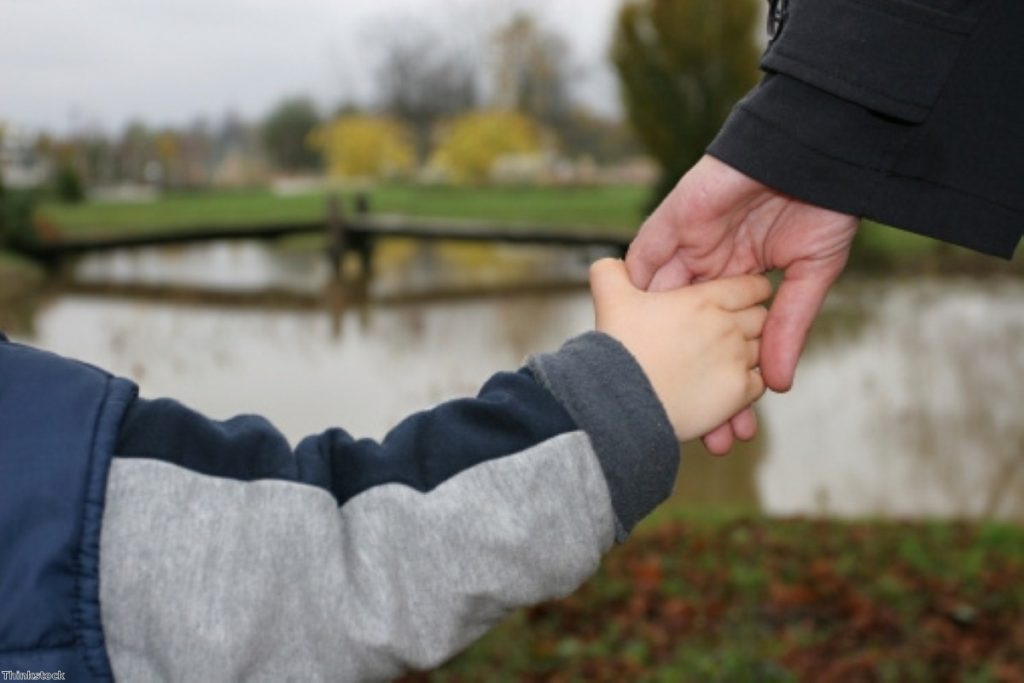Why is the government fighting measures to protect trafficked children?
Update: The amendment was passed by 282 votes to 184, in a significant defeat for the government.
Theresa May says it's her 'personal priority' to end slavery but she has a funny way of showing it.
Today, a Lords amendment to the immigration bill is being tabled which would offer trafficked children a guardian, to keep them safe and help them navigate the emotional trauma of asylum. The government is set to fight it.
Most serious organisations aiming to tackle child trafficking says you need a guardian system – one individual, independent of local authorities or government, to stay with the child as a friendly face, representing their interests.


It is international best practice, as recommended by the UN, Unicef and the US State Department. It's a key component of the EU anti-trafficking directive and the Council of Europe Convention on trafficking. When the Council of Europe visited Britain to see how it was doing with child trafficking it said it was "essential to ensure the children's protection".
We need it urgently.
According to the Child Exploitation & Online Protection Centre (Ceop), nearly a third of trafficked children go missing from local authority care after being identified (301 out of 942 between 2005 and 2010). A report by the Commons home affairs select committee suggested the figure was higher. They said two-thirds of the victims of child trafficking who go into care eventually go missing.
Hundreds go missing from children's homes each year. Traffickers use them for sex work, drugs or domestic slavery.
A Guardian investigation into a children's home outside Heathrow found 77 Chinese children had disappeared in three years. Only four were ever found – two of them in a brothel in the West Midlands.
The 59-bed local authority block had been used as a clearing house for children.
And yet the government refuses to budge from a child trafficking prevention programme which fails to take expert advice or adapt to evidence from abroad.
This afternoon in the Lords, Baroness Butler-Sloss and Lord McColl of Dulwich will bring forward an amendment calling for the creation of guardians for trafficked children.
They are backed by a massive collection of charities, including Asylum Aid, Barnardos, CARE and the Children's Society.
The amendment would provide someone to represent the child's interests, in their own language, as they go through the trial of reliving their trauma over-and-over again in a series of meetings with accommodation providers, medical centres, counsellors, education services, family trackers, translation assistance providers, legal advisers, asylum or consular support and the police.
It's a bewildering, upsetting ordeal in a foreign land. They need a friendly face which sticks with them throughout.
A study by psychotherapists Blackwell and Melzak identified that refugee children's distressing experiences could be mitigated by having one reliable person there next to them, on their side. A Refugee Council report found guardians were "facilitating increased communication and information sharing between professionals", which in turn could prevent disappearances from local authority care.
The Tories will fight the amendment, as will the Liberal Democrats.
They say the current patchwork system of advocates, independent visitors and independent reviewing officers, established in the Children Act 1989, is sufficient. But even collectively – putting aside the vital emotional element of having one trustworthy individual to take children through the process – this does not amount to a guardian.
Advocates, for instance, relate only to local authority care and are only appointed if the child requests them. Independent visitors and independent reviewing officers are limited in the places they can accompany a child to.
The guardian policy has been put to peers on a number of occasions – part of a commendable campaign by Lord McColl. First they told him to hold off so they could do research. When the research supported the guardians programme, they just ignored him.
Last time he lost by just 15 votes.
This afternoon, he may win. But May's 'personal priority' of challenging modern slavery seems paper thin.












